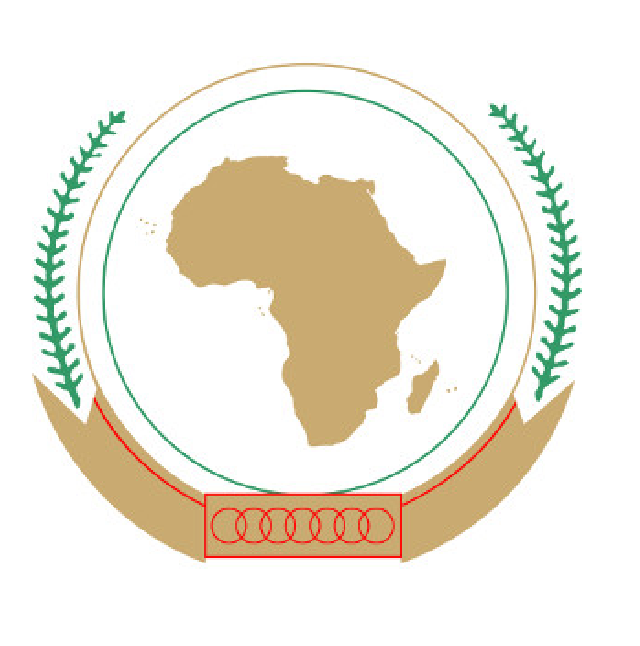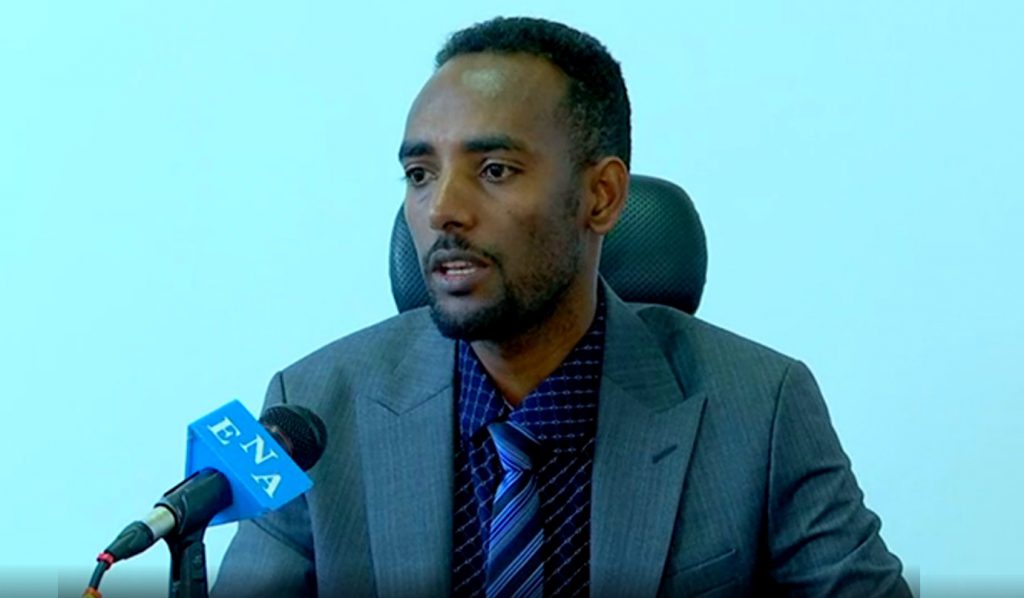How Can Human Rights Violations be Investigated Virtually from Remote? - ENA English
How Can Human Rights Violations be Investigated Virtually from Remote?

Staff Writer
A couple of days back Deputy Prime Minister and Minister of Foreign Affairs of Ethiopia Demeke Mekonnen has disclosed that Ethiopian upholds an irreversible stand on ensuring accountability on those suspected of violations of human rights.
This was disclosed on a meeting held in the Office of the Deputy Prime Minister between EU Commissioner for International cooperation Jutta Urpilainen and Representative of the Commission for the Horn of Africa Dr. Annette Weber.
The Deputy Prime Minister told the delegation that Ethiopia has conducted a joint investigation into the violations of human rights by the Office of the Attorney General in cooperation with UN International Human Rights Commission.
Demeke confirmed that Ethiopia holds an unwavering stance on making the violators of human rights accountable before the courts of law.
He noted that recently some international organizations and foreign based media outlets are attempting to spread misinformation regarding law enforcement measures taken by the government among the international community of nations. These entities are working on gathering one sided information with the objective of tarnishing the image of the country.
The Deputy Prime Minister added the media outlets have gone far enough to make Ethiopia wrongly accountable for the violation of human rights during the law enforcement measures taken by the government to ascertain the rule of law in Tigray Region.He recalled that the most inhuman and heinous massacre was conducted on the midnight of November 4,2020 on the Northern Command of the Ethiopian Defence Forces who were shedding their blood not only for the country but also for peace in Africa.
Some international organizations and media companies were dead silent and refrained from condemning the actions conducted on a restive defence forces in the region, the Deputy Prime Minister said.
He mentioned that the government was forced to embark on law enforcement measures as the result of the bloody massacre conducted on the army officers stationed in the Northern Command.
During the period in which law enforcement measures were taken, the government enforced legal measures on terrorist TPLF criminals and their leaders who organized and coordinated committed criminal acts of betrayal and brought them before the courts of law.
The Deputy primer noted that instead of investigating and assessing the nature of the betrayal and criminals acts perpetrated by the terrorist organization, a considerable number of international organizations and media companies resorted to disseminating unverified false reports.
They organized a protracted campaign of misinformation campaign trying to depict that all members of the Ethiopian defence forces have participated in the violations of human rights and crimes against humanity. Ethiopia has invited African institutions of human rights as part of its strong commitment to the resolution of the issue by investigating into the truth about the human rights violations that were allegedly conducted by the National Defence Forces of Ethiopia to clarify the actual incidents and also to ensure that the perpetrators are taken to courts of law.
The Deputy Premier recalled that on his speech at the Summit of African Peace and Security conducted on March 9, 2020, Prime Minister Dr. Abiy Ahmed has offered that Ethiopia is ready to work in coordination with the Commission in conducting investigation into the human rights violations allegedly conducted by the members of the National Defence Forces of Ethiopia.
He said that the Premier offered for cooperation with the Commission in view of the country’s commitment to resolving African problems by the African themselves
Moreover, the Deputy Premier has stressed the same position in his discussion with AU Commissioner Mousa Faki on March 11,2020
Based on the recommendations of the Premier the African Human and People’s Rights Commission tasked itself to starting the investigation.
Furthermore, the UN Human Rights Commission and the Ethiopian Human Rights Commission (EHRC) are also engaged in joint investigation into the possible violations of Human Rights in Tigray.
Incidentally, what has the African Human and Peoples Rights so far done on the invitation offered to it to work on the investigations in coordination with the Ethiopian Human Rights Commission?
Now some local sources reportedly indicate that the African Human and Peoples Rights Commission has side-lined the original proposal made to coordinate the investigation in coordination with the Ethiopian Human Rights Commission and has been engaged in unilaterally conducting its own investigation without notifying and coordinating with EHRC.
Such a unilateral approach contravenes with the proposal made by Ethiopia to conduct joint investigation by the African Human and Peoples Rights Commission. Apart from violating the sovereignty of Ethiopia, such approach contradicts with African Charter for investigating violations of human rights.
Article 46 of the Charter forbids the conduct of investigations into human rights violation on its own and on its whims and desires.
By way of discharging its responsibilities, the Commission is expected to work in coordination and cooperation with pertinent regional and international organizations.
Furthermore, according to the Charter, the Commission is expected to work in cooperation and coordination with the EHRC and duly refer any obstacles or hindrances it may encounter to the AU Peace and Security Commission.
Sources close to the issue indicate that the Commission has so far been working on its own and showed no interest in working with the EHRC nor did it report to the AU Commission if there is any cause for its inability to work with the EHRC.
This indicates that the Commission wants to investigate possible violations of human rights in Tigray only by itself and on its own accord.
Ato Mesud Gebeyehu, Human Rights Professional and Director of Association of Ethiopian Human Rights Organizations told ENA that the nonchalance of international human rights organizations to work with local counterparts in investigating human rights violations has now become a hurdle to effectively conduct investigations into violations of human rights.
He added that such unilateral approach to investigate violations of human rights becomes a cause of concern which will lead to one sided conclusions and resorting to distorted interpretation of facts on the ground. This happens when such organizations deliberately fail to comply with the laws and regulations that they themselves have helped to compile.
The fact that the organization has chosen to conduct the investigation only through its own desires and approaches defied the tacit agreement that Ethiopia has reached with AU Commission. It is not only against the cardinal principles of resolving African problems by the Africans themselves but also disregards the sovereignty of Ethiopia.
This will cause questions and legal issues to crop up not only on the mode of investigation by the Commission but also on the credibility of the approach itself.
According to the information from our sources, the procedures employed by the Commission completely defy the provisions explicitly provided in the Charter of the Commission.
Moreover, Article 46 of the Charter of the Commission clearly indicates that procedures to be followed should include collection of primary information pertaining to the investigation, consulting with major partners and stakeholders in a balanced manner, conducting field investigations on violation of human rights and other pertinent steps and procedures related to the process of investigating the violations of human rights.
If the investigation by the Commission does not include prompt cooperation and joint involvement from the Ethiopian side, conclusions could only be made by relaying simply on available information.
Our sources indicate that investigations conducted on alleged violations of human rights in Tigray could be based primarily on virtual information sources. In addition, our source noted that the field investigations are based only on information gathered from residents of Tigray found in the refugee camps.
How can the results of the investigations conducted in such manner be credible and trustworthy?
The Human Rights Layer Mensud noted that if the procedures and modalities of the investigations are not acceptable the authenticity and the legality of the report and the conclusions could not be legally valid.
Basing investigations on unfounded false allegations on the social media outlets that are marred with fake false stories which show violations of human rights in Ethiopia would certainly incur high level of legal accountability.
It is therefore important to first gather primary level evidences and information pertinent to the investigation. If this is not accomplished in a legally acceptable manner, there is a greater chance for drawing up wrong conclusions and hurriedly post the results on social media outlets.
How can an investigation conducted from far distance become credible and trustworthy? the human rights lawyer inquires.
The mere fact that international human rights organizations have shown no interest in investigating human rights violations in Afar and Amhara regions and restricting their investigations only in Tigray as if no violations of human rights have been conducted in the two regions shows marked political implications on the motives of the investigation itself.
The human rights researcher recommended that the Ethiopian Government should seek for the prompt rectification of the investigations and corrections in the procedures of investigation through pertinent diplomatic channels.
If this is not the case, how can the African Human and Peoples’ Rights conduct an investigation of violations of human rights without consulting and cooperating with all stakeholders to the issue? This is the question from all of us.
